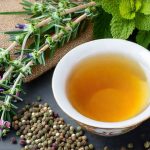The bladder, often taken for granted until something goes amiss, plays a crucial role in overall well-being. Its function is deceptively complex – maintaining continence requires a delicate balance between the nervous system, bladder muscles, and hormonal influences. Many factors can disrupt this equilibrium, leading to issues like frequent urination, urgency, or discomfort. While conventional approaches often focus on symptom management, exploring holistic strategies that support bladder health can be incredibly beneficial. This includes paying attention to lifestyle choices, dietary habits, and even incorporating specific herbal teas into a seasonal rotation designed to address the changing needs of your body throughout the year. Understanding how to optimize hydration is also key to maintaining a healthy bladder.
Traditional Chinese Medicine (TCM) and Ayurveda have long recognized the connection between seasons and organ systems. The idea isn’t about curing bladder problems directly with tea, but rather supporting its optimal function by aligning our choices with natural rhythms. Just as we adjust our wardrobes and diets to match the weather, we can also tailor our herbal intake to support different aspects of bladder balance depending on the time of year. This approach emphasizes proactive care – nurturing the system when it’s strong and providing gentle support when it’s more vulnerable. It’s about working with your body, not against it.
Seasonal Bladder Support: A Holistic Approach
The concept of seasonal tea rotations rests on the idea that different seasons impact the bladder in distinct ways. For instance, winter tends to be associated with contraction and storage – a time when the bladder may benefit from herbs that support strengthening and warming. Conversely, summer is linked to expansion and release; here, cooling and soothing herbs might be more appropriate. This isn’t about rigid adherence to rules but rather mindful adaptation based on your individual experience and needs. The goal is to create a personalized protocol that resonates with your body. To further support overall wellness during these transitions, consider supporting both the kidneys and bladder as seasons change.
This approach moves beyond simply addressing symptoms. By choosing teas aligned with the season, we support the underlying energetic principles governing bladder function. In TCM, the bladder is closely connected to the Kidney meridian – often considered the root of vitality and resilience. Strengthening the Kidneys through seasonal herbal support can indirectly benefit bladder health by improving overall energy flow and reducing stagnation. Similarly, in Ayurveda, maintaining a balance between Vata (air & ether), Pitta (fire & water), and Kapha (earth & water) is essential for optimal well-being; tea choices can help pacify imbalances that contribute to bladder issues. It’s helpful to balance energy and stillness to support healthy function.
Ultimately, seasonal tea rotations are about creating a mindful practice of self-care. It’s an opportunity to tune into your body’s wisdom and provide it with the support it needs to thrive throughout the year. This isn’t a quick fix but rather a long-term investment in overall health and well-being.
Spring Renewal: Detoxification & Gentle Diuretics
Spring, traditionally associated with the Wood element in TCM, is a time of new growth and detoxification. As winter’s stagnation begins to thaw, the body naturally seeks to eliminate accumulated toxins. This makes it an ideal season for teas that gently support kidney and bladder function, promoting healthy elimination without being overly harsh or depleting.
- Dandelion root tea is a classic choice, acting as a mild diuretic and supporting liver detoxification. It’s important to source high-quality dandelion root to ensure purity and potency.
- Parsley tea offers similar benefits, containing natural diuretics that help flush out toxins.
- Nettle leaf tea provides essential minerals while also promoting healthy kidney function.
It’s vital to approach spring detox with gentleness. Avoid overly aggressive cleansing protocols that can overwhelm the system. Instead, focus on incorporating these teas gradually into your routine and pairing them with a diet rich in fresh vegetables and hydrating fluids. Listen to your body – if you experience any discomfort or adverse effects, discontinue use and consult with a qualified healthcare professional. You may also want to review foods that support kidney drainage during this time.
Summer Cooling & Soothing Support
Summer’s heat can exacerbate bladder irritation for some individuals, particularly those prone to urgency or inflammation. The Pitta dosha in Ayurveda tends to be aggravated during summer months, leading to increased acidity and potential discomfort. Therefore, teas that offer cooling and soothing properties are especially beneficial during this season.
- Corn silk tea is renowned for its gentle diuretic effects and calming influence on the bladder. It can help reduce inflammation and ease irritation without being overly stimulating.
- Hibiscus tea, while vibrant and flavorful, offers a refreshing coolness and supports healthy kidney function. However, individuals with low blood pressure should consume hibiscus cautiously due to its potential blood-pressure lowering effects.
- Coconut water isn’t technically a “tea” but is incredibly hydrating and cooling for the system, naturally supporting bladder health.
Summer is also an excellent time to focus on hydration. Drink plenty of water throughout the day to help flush out toxins and prevent dehydration, which can worsen bladder symptoms. Avoid sugary drinks and excessive caffeine, as these can irritate the bladder lining.
Autumn Strengthening & Tonifying
As autumn arrives, bringing with it a sense of inwardness and preparation for winter, it’s time to focus on strengthening and tonifying the Kidney meridian – the energetic root of bladder function in TCM. This season calls for teas that support resilience and build up energy reserves.
- Ginger tea provides warming and invigorating properties, supporting circulation and promoting healthy kidney function. It’s particularly useful for individuals who tend to feel cold or sluggish during autumn.
- Cinnamon bark tea offers a similar warming effect while also possessing anti-inflammatory properties.
- Astragalus root tea is considered an adaptogen in TCM, helping the body cope with stress and strengthen its immune system. This can indirectly benefit bladder health by reducing overall stress levels, which can contribute to urinary issues.
Autumn is a time for slowing down and nurturing yourself. Prioritize rest, sleep, and nourishing foods to support your body’s natural rhythms. Avoid overexertion and focus on building resilience in preparation for the colder months ahead. Remember that consistency is key – incorporating these teas into your routine regularly will yield the greatest benefits. To help manage stress levels during this time, consider strategies for supporting bladder function during times of stress.
It’s important to remember that this information isn’t a substitute for professional medical advice. Always consult with a qualified healthcare provider before starting any new herbal regimen, especially if you have underlying health conditions or are taking medications. Individual responses to herbs can vary significantly. Furthermore, incorporating gentle touch therapies may also be beneficial.





















